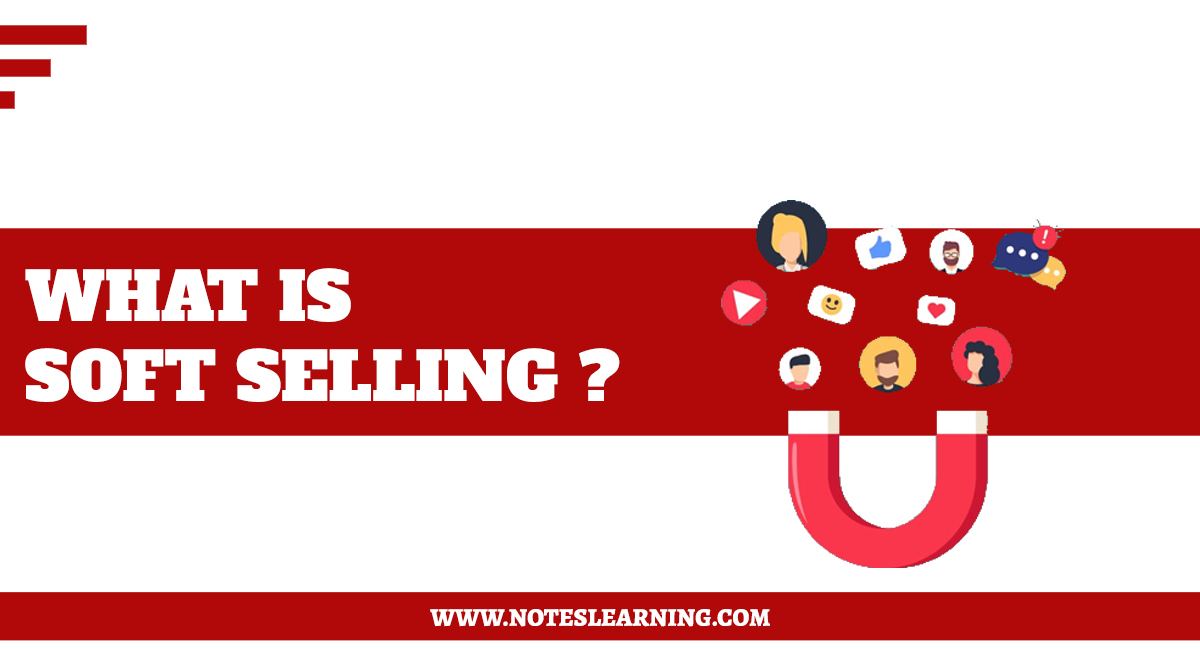Introduction
A soft sell is a strategy to marketing and sales that uses tactful language and a non-aggressive style. The goal of a soft sell is to prevent upsetting potential consumers and turning them away. Soft selling is a convincing, subtle, low-pressure sales method. It may not result in a sale the first time a product is given, it does help to promote recurring business. Soft selling approaches emphasize in educating the customers about the benefits and value of the products and services and promote selling in a very consultative style.
A salesperson who employs a soft sell strategy is not passive; rather, this strategy is intended to promote a product without coming across as forceful. To help the potential buyer unwind, a salesperson may adopt a more conversational style. Since the salesman must amiably hold the customer’s attention throughout the soft sell, some energy is needed on their behalf. The repeating of thought, message, or expression of the desired consequence helps soft selling. Such strategies are typically more compelling and less likely to repel potential customers.
Advantages and Disadvantages of Soft Selling Technique
Soft selling has a number of benefits and drawbacks. The following are some benefits and drawbacks of soft selling:
Advantages of Soft Selling
Develop Trust with Customers
Soft selling is centered on developing a relationship with the client that is founded on mutual respect and trust. The salesperson can establish oneself as a trusted advisor by taking the time to comprehend the customer’s wants and offering them pertinent information. This can improve customer loyalty and encourage repeat business. For instance, any business going an extra mile for providing better services to the customer will definitely gain the trust of the customers.
Customer-focused
Soft selling prioritizes the demands of the customer, which can assist the salesperson in choosing the best good or service for the client. Customers may be more satisfied as a result of this strategy since they perceive that their requirements are being met.
Building Long-term Relationships
Soft selling is more concerned with creating lasting connections with clients than it is with making a rapid transaction. Building trust with the consumer through a consultative approach will help the salesperson increase repeat business and referrals.
For instance, a sales person catering to a customer and providing a personalized recommendation by understanding the need and preferences is more likely to build strong relationships.
Cross selling and Up selling opportunities
Soft selling is very interactive and customer oriented and allows business to discover customer needs and preferences. This opens the possibilities of upselling and cross selling. Understanding the needs and preferences of the customers, the business can recommend alternate products and the business can present additional products and services that may upgrade and add value to the customers experience.
For instance, if a customer reaches a business to buy a smartphone from a particular brand, with interaction, the business representative can suggest different smartphones matching the requirement of the customer and also the representative can sell other complementary products like phone case, head phone, mobile stickers and glasses etc.
Improved Brand Reputation
Soft selling has ‘customers’ as their prime focus. Soft sell focuses on delivering value, providing customer experience and building strong relationships. Such continuous effort leads to customer loyalty.
Loyal customers promote the business. Satisfied customers spread the business through word-of-mouth as customers trust your business. This soars the business in scale and in brand value. Similarly, the positive testimonials, responses and vocal customers build the brands.
Disadvantages of Soft Selling
Time-consuming Procedure
Soft selling demands the salesman to take the time to understand the customer’s needs and give them pertinent information, which may be a time-consuming procedure. Salespeople who are under pressure to hit sales goals right away might not be a good fit for this strategy.
Need for Strong Communication Skills
Strong communication abilities, including active listening and empathy, are necessary for soft selling. The ability to connect with customers may be challenging for salespeople who struggle with these abilities.
Not Applicable in all Situations
In some circumstances, soft selling might not be the best strategy. For instance, a more direct approach can be required if the consumer is pressed for time and wants to make a decision right now.
Overall, if done right, soft selling can be a successful sales strategy. It can assist salespeople in developing long-lasting connections with clients and earning their trust, which may result in more sales and repeat business. It can take a lot of time, though, and not every circumstance may call for it.
Longer sales cycle
Soft selling believes in process, building relationships, and personalized services. It allows customers to make decisions after understanding all their needs and preferences. This approach can be lengthy as it requires more time to educate and engage customers. The conversion cycle of potential customers to sales cycle is longer than the traditional selling. Longer sales cycles may not be beneficial for all types of business.
Risked of missed opportunities
Soft selling approach is so customer centric that it ignores all other factors that may be advantageous or beneficial. While fulfilling all the needs and preferences of the customers and providing tailored services and products, businesses may be missing the other opportunities that may enhance the overall experience. While catering the needs of a niche customer, the business might lose the sight of other potential customers. The risk of missed opportunity is another disadvantage of soft selling.

